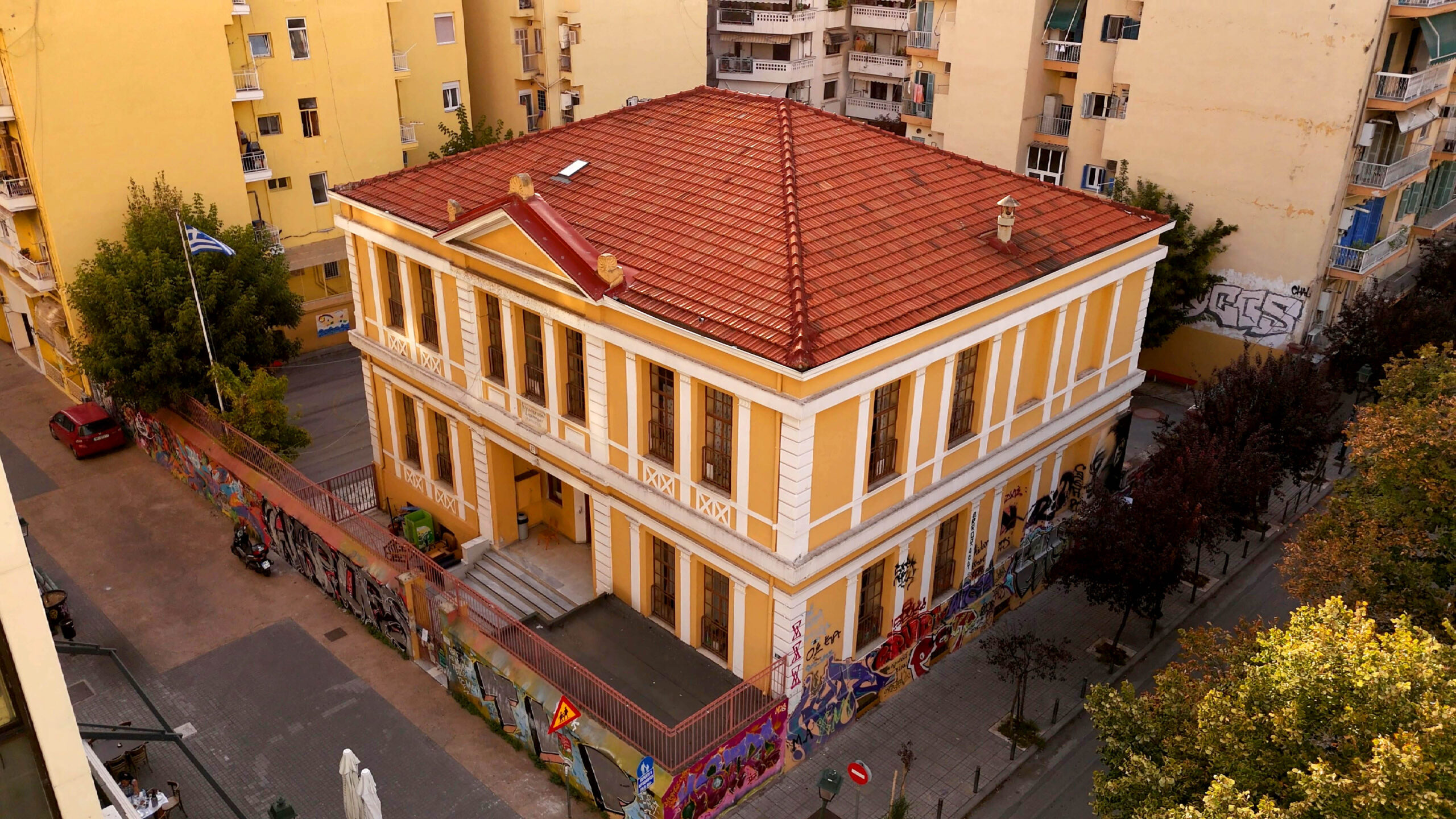40th Primary school of Thessaloniki
The 40th Primary school is found in the center of Thessaloniki near the White Tower. The school was built in 1907. TheBuilding is three-leveled and it has a new-classical architect style. It operates as a public school. In our days there are 140students. 13 of them are economic refugees from Albania, Venezuela, Georgia, Armenia, and refugees from Iraq. The school has a flexible program. From 08.00pm-13:15 is obligatory but from 07:00- 08:00 and 13:15 -15:00 or 16:00 in theschool attend those students whose parents work. Nowadays in Greek society there is a growing awareness of environmental issues.

One of them is the transition to a more circular economy, a target of the EU comission , where the value of products, materials and resources is maintained for as long as possible, and the generation of waste minimised, is an essential contribution to the EU’s efforts to develop a sustainable, low carbon, resource efficient and competitive economy. Such transition is the opportunity to transform our economy and generate new and sustainable competitive advantages for Europe. The authorities make efforts to reduce the use of plastic bags and many recycle bins are allocated in the neighborhoods. Also many environmental organizations act against the pollution of the environment and cooperate with schools. Despite the effort for recycling, we noticed that the majority of the recycled material in the neighborhoods ends up in a unique bin (the blue bin). Also people (and the students) are less familiar with the notions of “reducing” “reusing” and “repurposing” as a result there is a growing amount of litter, recycled or not. Our school during the last three years has implemented various environmental programs. Among them is the recycling of various materials such as aluminium and plastic in the yard’s blue bin, also paper inside the classrooms; we have recently started to cooperate with the municipality of the city and we recycle in different bins small electronic devices and batteries; we collect lids from plastic bottles and donate them to organisations who exchange a big amount of the lids for wheelchairs. All the above act as a means of raising awareness to students, teachers and parents of the protection of the environment through experiential activities.We are planning to use the eco schools’ seven stage methodology for planning, implementing and evaluating the process. The method involves a wide diversity of individuals from the school community, with the students of all backgrounds and abilities playing a primary role in the process.